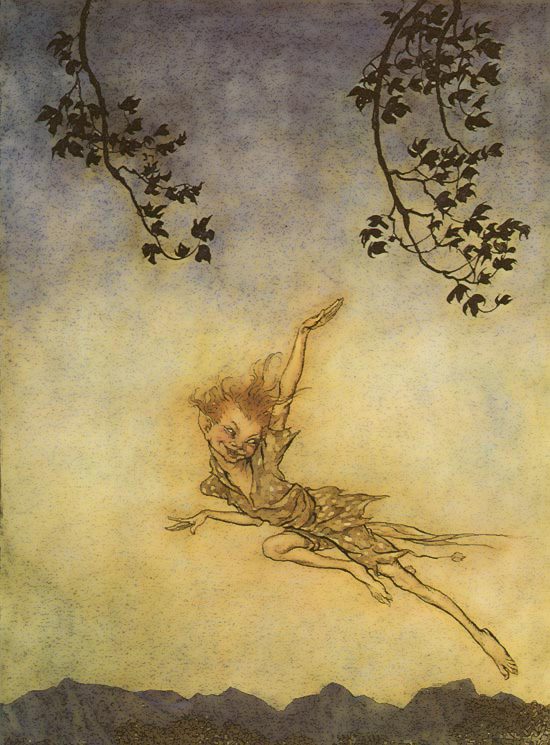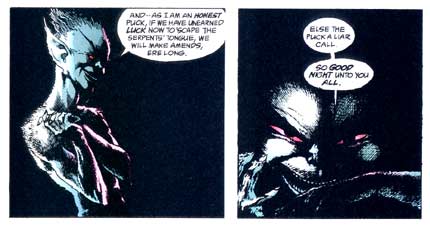Puck and Midsummer's Mediums
Film adaptations of movies are commonplace in modern media. Certain 'original' elements are retained while others are omitted altogether. One of the primary reasons for these additions and omissions is simply due to the medium by which a story is told; a transformed narrative structure telling a 'different' (of various degrees) story. Among such works A Midsummer Night's Dream has been embodied in countless mediums including Arthur Rackham's illustrated play version, Gaiman and Vess' comic version and a juxtaposition of elements into Disney's Gargoyles animated television series. One character in particular can be comparatively analyzed to show how characterization changes in these various literary and theatrical works: Puck.
Puck is notable for being the primary antagonist of the aforementioned play, being described as a trickster of sorts. After experiencing the three works in their form I felt slightly betrayed by this character, my understanding of Puck is skewed depending on the version I witness, ultimately feeling the most comfortable with the Gargoyles Puck. A harmless child-sized prankster, a diabolical menace, and a powerful magic weilding adult fairy; each perception is quite different from the last thanks to the different illustrative elements involved. I felt a sense of childish serenity by Rackham's illustrations on Puck, fear and disdain towards Gaiman and Vess' comic Puck, and only in the animated version of the Gargoyles did I feel Puck was indifferent but looking for a laugh, which is how I had imagined him to be. I feel it is the elements within each medium that characterized Puck so differently to me. The realistic paintings were too positive (for lack of a better term), the comic panels beastly drawings and ominous closure seemed much too evil. I feel that it was the mix of cartoonish cel shading and 'maturity' of Puck's personality that made me accept him in this form the most.
The combination of illustrative techniques from all three of these adaptations create a completely different take on the original play. Perhaps the next time I read Shakespeare's play I will form my own identity of Puck based on some, or even all, of these characterizations.

